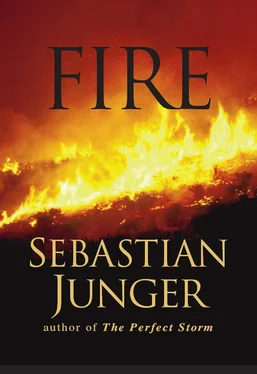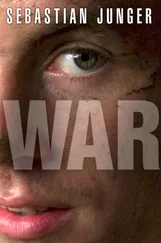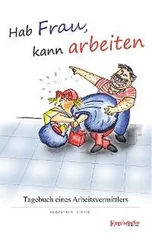As checkpoints go, it could have been worse—far worse. Albanian translators have been arrested and beaten at checkpoints, and the day before the attack on Prekaz, Harald and three other journalists were punched, dragged into a bunker, and questioned for an hour. When the police saw that Harald lived in Sarajevo, they accused him of being a Muslim—the predominant Albanian religion—and Harald had to prove he wasn’t by making the sign of the cross. Then the cops started going through Harald’s notebooks, demanding a translation of every word that was written down.
At one point, a cop spotted the name Frenki Simatović in Harald’s notebook, then turned to his friend and said, “Look, he even has the name of our boss in here.” Harald had no idea who Simatović was; he’d just written the name down during an interview and filed it away for future reference. Then they demanded to know if any of the reporters had ever been to a town called Prekaz. They kept asking over and over again: “Prekaz? Prekaz? Have any of you motherfuckers ever been to Prekaz?”
Prekaz is such a small town that before the massacre, people in Priština—a city half an hour away—had never heard of it. Harald just kept pleading ignorance, but when the Serbs finally released him, he called his editors and told them to be on the lookout. “I have no idea where it is; it’s not on the maps,” he said. “But something’s about to happen there. Just check the wires for a town called Prekaz.”
The next morning the first shells started to fall.
Back in 1991, as Yugoslavia began its descent into the hell of civil war, the newly elected Milošević had a somewhat delicate problem on his hands. He wanted to drive the Croats and Muslims out of large swaths of Yugoslavia, but he didn’t dare send the Yugoslav Army to do it.
The solution he came up with was simple. First, he surrounded himself with a trio of rabid nationalists—Jovica Stanišić, Radovan Stojičić, and Frano (“Frenki”) Simatović—known collectively as the Vojna Linija, or the Military Line. The Vojna Linija had little association with the Serb Army; it was a shadowy group within the Ministry of Interior Affairs, which was known as the MUP. After the Vojna Linija was established, Milošević began arming local Serb populations in Croatia and Bosnia, and training paramilitary forces. The weapons, distributed by Stojičić and Simatović, were taken from police and army depots. The paramilitary forces simply came out of the country’s jails.
According to Marko Nicović, a former Belgrade police chief who later had a falling-out with Milošević, convicts were told that their sentences would be suspended if they went to the front lines. Many were only too happy to oblige. The best-known groups were the White Eagles of Vojislav Šešelj, a virulent conservative later named to the Belgrade government; the Red Berets of Frenki Simatović; the unnamed forces of Captain Dragan; and—worst of all—the Tigers of Željko Ražnatović. Arkan, as Ražnatović was known, was wanted by Interpol for bank robberies and murders committed throughout Europe.
In 1992 the Yugoslav Army officially withdrew from Bosnia, but Serb paramilitary forces, including Simatović’s Red Berets, continued to operate there. That same year Šešelj and Arkan went to Kosovo to terrorize the locals into peacefulness, opening a recruiting office in Priština’s Grand Hotel and putting snipers up on the rooftops. (They also made tremendous amounts of money on the local black market.)
Both men turned up around Srebrenica in 1993, “cleansing” the Muslims from the small towns in eastern Bosnia. The Dayton Accords left the paramilitary foot soldiers without much to do, so they either sank back into Belgrade’s underworld or looked for other wars; some reportedly fought—and died—in the jungles of Zaire during the downfall of Mobutu Sese Seko. They didn’t have to wait long for another war in their own country, though: by 1997 Kosovo had ignited.
Harald and I had been in Kosovo about a week when things started to calm down; we could almost joke with the police at the checkpoints. The Serbs were still shelling the villages in central Drenica, though, and before leaving Kosovo, we decided to make one more stab at going there. We went in on a big, sunny day, the shadows of cumulus clouds sweeping across the Drenica hills and the fields mottled and bare in the early-spring sunlight. We were headed for Ačarevo, a town rumored to be the center of KLA resistance.
There were two ways to get in: walk six miles along some railroad tracks and hope no one shot at you, or drive down dirt roads across the central plateau and hope no one shot at you. The cops at the checkpoint warned us that there was a lot of gunfire on the road and suggested that we wear flak jackets. We thanked them and drove on, and as soon as we were out of sight we turned onto a dirt track that we thought led to Ačarevo.
The road climbed up onto a plateau, and we started across the highlands of Drenica, like some huge, slow beetle scratching across someone’s dinner table. “I don’t like this,” Harald muttered. I rolled down the window so we could hear gunfire more easily, and soon the landscape of war magically materialized all around us: bunkers and machine-gun nests and tanks on distant ridgetops. They emerged out of nowhere, like images brought out by a darkroom developer. But when I looked away, it took me a moment to find them again. They were there; then they weren’t. “This is crazy,” Harald said. “The entire fucking Serb Army is watching us.”
He turned the car around, and we plunged back down the dirt road and went jouncing out onto the hardtop. It was difficult to see how the KLA could fight a guerrilla war in a land like this: no forests to hide in; no mountains to run to; no swamps to stop the tanks. Just open fields and brush-choked hills. It would be suicide to confront the Serbs openly on such ground, so the KLA’s only choice is to carry on a war of harassment that may eventually cost the Serbs so much, in money and lives, that they have to pull out.
For their part, the Serbs have no stomach for a protracted fight in which farm kids from Drenica are popping out of the hedgerows with grenade launchers and AK-47s. A grenade launcher will easily take out a tank; a Molotov cocktail placed in its air intake will destroy one as well. The Serb population—largely spared the horrors of Bosnia but demoralized by massive inflation and a crippled economy—isn’t going to stand for a war in which too many of its young men get roasted alive in their tanks.
For the Serb military, the only solution is terror. Every time a cop is killed, wipe out a family. Every time a police patrol gets shot up, level a village. Slaughter is a lot easier—and cheaper—than war, and it forces the young idealists in the KLA to decide whether they really want this or not. It’s nothing for a twenty-four-year-old with no future and no civil rights to sacrifice his life in a guerrilla movement; it happens all the time. But for him to sacrifice his kid brother and two sisters and mother: that’s another question entirely.
Harald and I continued north on a small paved road until we topped out on another hill, from which, far away, we finally saw Ačarevo. It wasn’t much, just a small white village shoved down between some hills. It rippled in the heat coming off the fields. We moved on, and around the next bend we found ourselves at a heavily reinforced checkpoint, with mortars by the road and bunkers dug into the hillsides. We stopped, and a cop came out cradling a machine gun. “Let me see your papers,” he said. He stood there studying them for a while as I sat sleepily in the passenger seat and Harald lit up a cigarette.
Читать дальше












